PHOTOGRAPHY BY REBECCA SIMONOV
On a recent dewy morning, a group of nearly 50 elementary and middle school students from Detroit Public Schools arrive on a farm in northwest Detroit. This four-acre, sweeping plot of land is home to a hidden treasure in the city: Detroit Farm & Cider, a 139-tree arbor filled with apple, pear, plum and peach trees and, soon, what might be the first Black-owned cider mill in the country (more on that later). It rained earlier, and occasionally water sprinkles down from the leaves of the trees that arch over the farm, which, despite its size, is nearly invisible from the street in the Dexter-Linwood neighborhood where it sits.
“It’s a big playground for kids,” says Leandra King (aka “Farmer Lee”) as she introduces the farm’s activities to the students: hayrides, zip line, arts and crafts and lacrosse, among others. The Detroit resident, 33, founded Detroit Farm & Cider, which is embarking on its first full season this fall with an exciting new addition in the works: a cider barn with two commercial apple presses and a doughnut fryer.
Leandra King opened Detroit Farm & Cider last fall with the goal of providing programming for city youth. The farm drew upwards of 600 visitors every weekend.
The farm’s assortment of chickens and two goats (Baby and Buttercup) roam the grounds around the shipping containers that serve as a barn house. Some children pet horses or learn about bees, while others do yoga with the goats in the covered greenhouses. For many of these kids, the field trip marks their first visit to a cider mill. “A lot of these children have not been outside Detroit city,” says Everett C.J. Whitfield, a Detroit public school teacher and one of the group’s chaperones.

Buttercup, one of the two goats that live at Detroit Farm & Cider.
Located on the site of an abandoned elementary school, Detroit Farm & Cider has all the accoutrements of a typical Michigan cider mill — except not in some far-flung suburb. The novelty is not lost on the community: Last October, King showcased the farm’s offerings over two months during its weekly Fall Harvest Festival, a free event that drew 600 to 800 visitors every Sunday.
This year, Detroit Farm & Cider is preparing for an Oct. 1 opening. As of press time, King was also about to launch a series of weekly farm-to-table dinners on Saturday nights. The dinners, which will be held in a heated greenhouse once it gets too cold to eat outdoors, will feature a three-course meal prepared by a local chef (Quiana Broden of The Kitchen by Cooking with Que and Kristyn Koth of mobile restaurant Pink Flamingo are first up) as well as live music and horse-and-carriage rides through the orchards. “This is how we plan on generating revenue throughout the fall and winter,” King says.

Detroit Farm & Cider: A First in the City
Image courtesy of Detroit Farm & Cider
It’s both surprising and not that King opened a cider mill in the middle of Detroit. A lifelong resident of the metro area, King had a turbulent upbringing — she grew up shuffling between her father, a mother addicted to drugs and her grandmother. She entered into the foster care system at the age of 10 and stayed in it for seven years. Still, she always found solace in nature, including on childhood trips to the Belle Isle conservancy with a neighbor.
When King aged out of foster care at 17, she was lost and aimless. “Most kids who grow up in the … system experience a hefty amount of trauma,” she says. “Sexual abuse, physical abuse, abandonment, neglect.”
When Brian Geary, a longtime friend and mentor to King, met her in 2005, she was homeless, standing at a bus stop late at night, after service had ended. He gave her a ride, checked her into a hotel and since then has offered her advice and motivation through a string of jobs. “She was very intelligent, she just didn’t have a foundation [of stability and security],” he says. “She was just searching for herself. But the farming aspect … she naturally gravitated towards that.”
Indeed, King built a colorful resume over the next decade: She dabbled in real estate, medical transportation and even did a brief stint as a barber’s apprentice. She also became a mother (she has two daughters, now 7 and 8) and began homesteading, installing solar panels and a rain-catching system on her house in northwest Detroit, with the intent of living off the land.

King’s daughter Crystal (top) with one of the farms chickens, and Lauryn (below), atop one of their horses.

In 2015, King started her first garden in a vacant lot next door to her house and tended it with her daughters — still her most reliable farmers, she says. Neighbors started coming over, and she would give them vegetables that she’d grown. Two years later she founded Finding Our Roots, a nonprofit focused on community-build-ing activities, and in 2019 incorporated the farm that became Detroit Farm & Cider. (King is in the process of figuring out whether the farm will be housed under her existing nonprofit, a commercial enterprise or as a separate entity.) “It’s difficult to leave my farm,” King says, even though she lives nearby. “Nature is healing.” She walks around barefoot as she makes her way around the property: “It helps keep me grounded,” she says.
Still, King is keenly aware of the history she’s making. She says most cider mills began as farms that were owned and passed down by white families, while Black people farmed land owned by others as sharecroppers. “Black folks have been farming for over 400 years, so it’s a little baffling that there are no Black-owned cider mills,” she says. (Detroit officials are looking into the claim that King will be the first Black cider mill owner in the country. A city spokesperson said research is ongoing.)

Detroit Farm & Cider boasts nearly 140 fruit trees, including apple, peach, pear, and plum.
Regardless of how big a trail she’s blazing, King is set on making her own way. She dreams of expanding into hard cider, adding more mills and, possibly, changing the name to King’s Farm and Cider. “My vision is building a legacy,” she says, adding that her ultimate goal is not to become a cider-and-doughnut destination but instead to provide programming for city youth. She gestures around to the kids playing; the programming “is the meat,” she says, while “the cider mill is the potatoes and veggies. In order to get you have to give.” Until the cider barn is complete, King plans to purchase cider and doughnuts from an orchard in Sterling Heights; she’s also in talks with Armada-based Blake’s to press the apples that she grows on her farm.
Today, though, she’s focused on the kids running around the field where the barn is planned. She organizes some students for a sack race — some of whom are openly skeptical of the activity. “Nothing’s hard as long as you know it’s not hard,” King says, encouraging one child to participate. “Tell yourself that it’s easy.”
Detroit Farm & Cider, 1600 Lawrence St, Detroit. (313) 915-0057

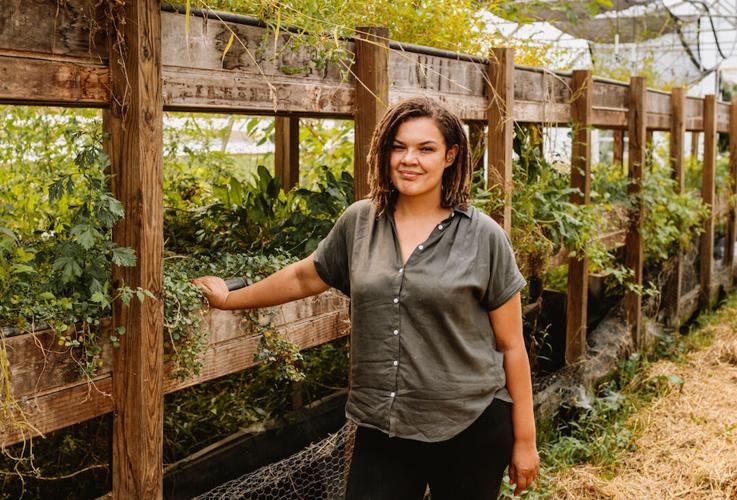
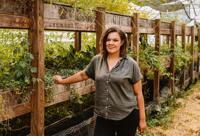
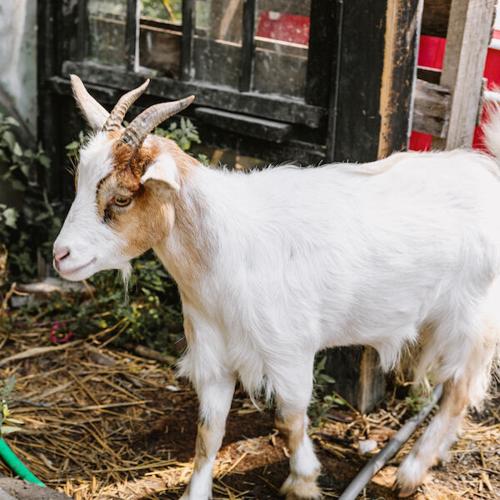
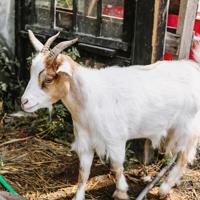

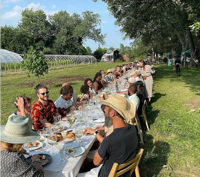



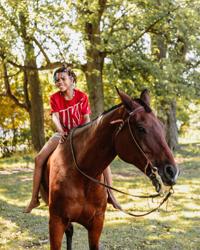

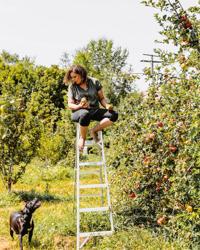
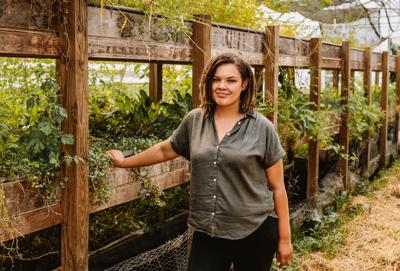



(0) comments
Welcome to the discussion.
Log In
Keep it Clean. Please avoid obscene, vulgar, lewd, racist or sexually-oriented language.
PLEASE TURN OFF YOUR CAPS LOCK.
Don't Threaten. Threats of harming another person will not be tolerated.
Be Truthful. Don't knowingly lie about anyone or anything.
Be Nice. No racism, sexism or any sort of -ism that is degrading to another person.
Be Proactive. Use the 'Report' link on each comment to let us know of abusive posts.
Share with Us. We'd love to hear eyewitness accounts, the history behind an article.